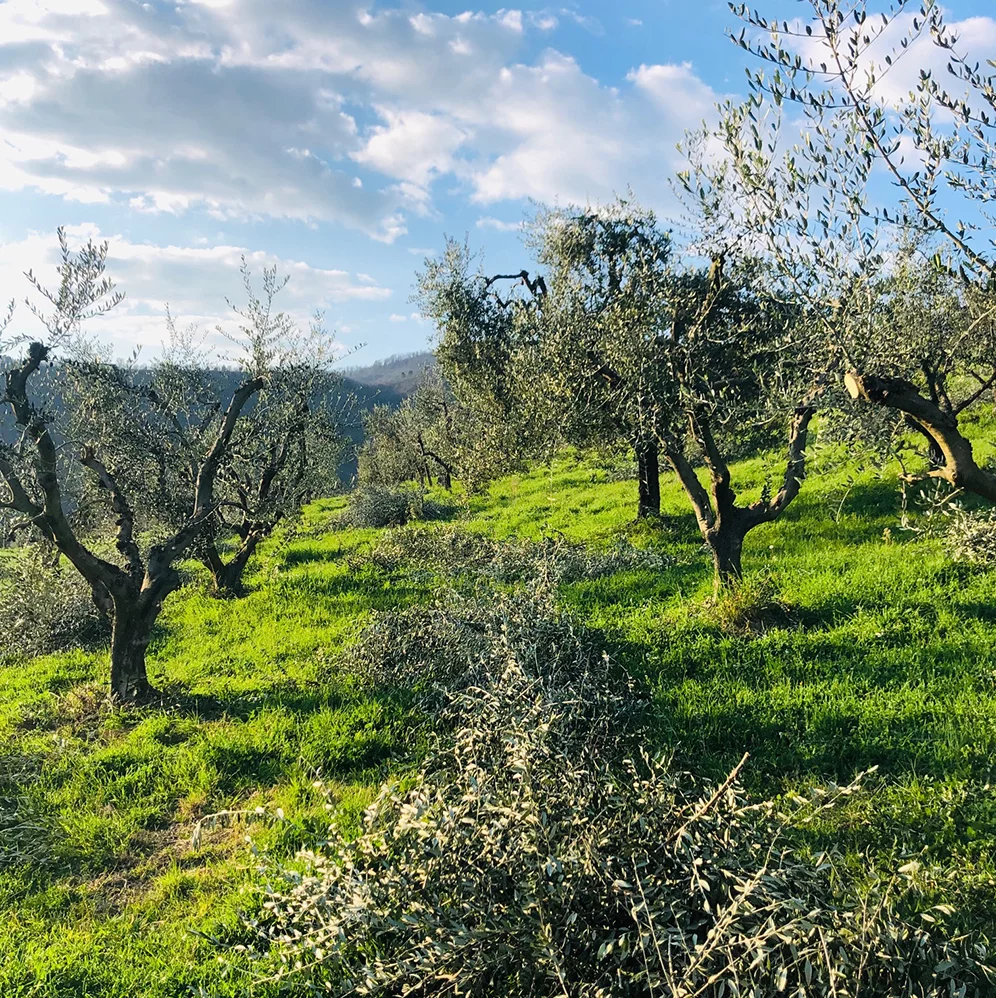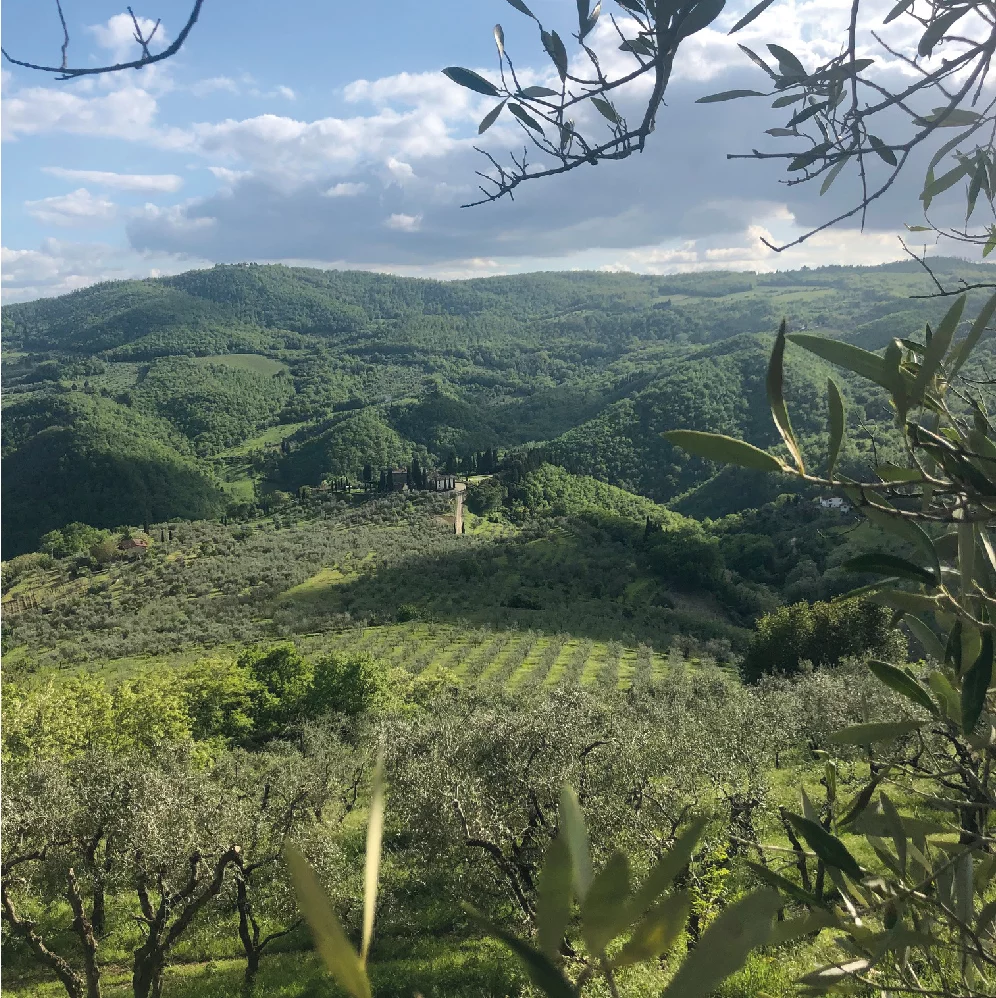
The farm's olive groves extend for about 35 hectares with plants of different types: Frantoio, Moraiolo and Leccino.
The olives are normally harvested from October 15th to December 15th, during the harvest, also known as “brucatura”, the worker use compressed air blast chillers (mechanical rakes) which, by moving, make the olives fall on cloths.
From the fields the olives are then brought to the mill and placed in large plastic crates with large holes to allow ventilation on all sides to facilitate the storage.
The olives thus obtained are pressed within 24/48 hours of harvesting to maintain the organoleptic and health characteristics of the oil unaltered.
The pressing process requires that the olives are thrown into the “hopper” an aluminium container, from here a conveyor belt pours them into a washing machine where the olives are washed with fresh running water thus eliminating possible residues such as dust, leaves and twigs
The olives now automatically enter the crusher which crumbles them together with their stone, the result is an intense-smelling olive paste.
The pasta is then ready for malaxing, in fact it passes into two malaxers where a slow and sweet amalgamation takes place.
Then the paste is placed in the decanter, where the extractive centrifuge separates the two components of the olive paste: the pomace and the vegetation water mixed with olive oil.
The pomace is transported through the augers to the outside, while the liquid part is introduced into a separator which, thanks to the diversity of specific weights, separates the vegetation water from the olive oil, the latter has thus reached the conclusion of the process and comes out of the machine with an intense green colour and a strong and pungent fragrance.
The last stage of the process involves storing the oil in different silos placed in a room designed to keep the temperature unchanged, and avoid proximity to heat sources.
